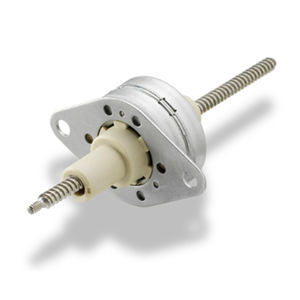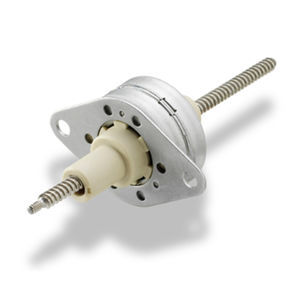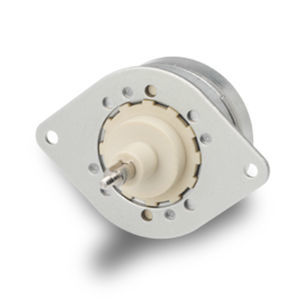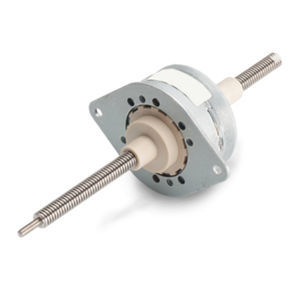
- Company
- Products
- Catalogs
- News & Trends
- Exhibitions
Linear actuator 26DBM-K serieselectricstepperlead screw
Add to favorites
Compare this product
Characteristics
- Movement
- linear
- Type
- electric
- Technology
- stepper, lead screw
- Configuration
- single-acting
- Motor
- DC
- Voltage
- 12-volt
- Protection class
- maintenance-free
- Applications
- for medical applications, damper
- Other characteristics
- compact, high-force, maintenance-free
- Stroke
13.2 mm
(0.52 in)- Force
Max.: 35.6 N
Min.: 5.5 N
- Motor power
3.4 W
(0 hp)- Ambient temperature
Max.: 70 °C
(158 °F)Min.: -20 °C
(-4 °F)
Description
The 26DBM-K is a captive linear actuator that provides up to 128 oz of linear force in a 26 mm frame size. The 7.5 degree step angle and .0005" lead screw pitch option allows for greater positional resolution.
Product Highlights
> High continuous linear force output for size
> Digitally controlled - easy to use with a micro processor
> Cost effective - compact design, lower integration cost
> Maintenance free - no brushes to replace
> Unipolar and bipolar winding options
> Captive and non-captive designs
>Long life - ball bearing design
Customization Available
> Coil modifications - resistance and inductance
> Higher strength plastics for higher impact forces
> Magnets - to yield higher linear force or reduced detent levels
> Reduced or increased detent force to suit the application
> Screw - metric or imperial tips, length
> Special flanges, connectors, end of motion detection sensors
> Wiring - connectors, lead length, shrink tubing
Applications
> Motors for Medical Pipettes
> Damper Actuation
> Flap Actuation
> Printers and Copiers
> Switching Systems
Catalogs
No catalogs are available for this product.
See all of Portescap S.A.‘s catalogsRelated Searches
- Portescap actuator
- Portescap linear actuator
- Portescap electric actuator
- Portescap compact actuator
- Screw actuator
- Portescap DC actuator
- Double-acting actuator
- Portescap stepper actuator
- Positioning actuator
- Portescap 12-volt actuator
- Lead screw actuator
- Mini actuator
- Portescap actuator for medical applications
- High-performance actuator
- Portescap single-acting actuator
- Maintenance-free actuator
- Custom actuator
- Handling actuator
- Long-stroke actuator
- High-efficiency actuator
*Prices are pre-tax. They exclude delivery charges and customs duties and do not include additional charges for installation or activation options. Prices are indicative only and may vary by country, with changes to the cost of raw materials and exchange rates.












